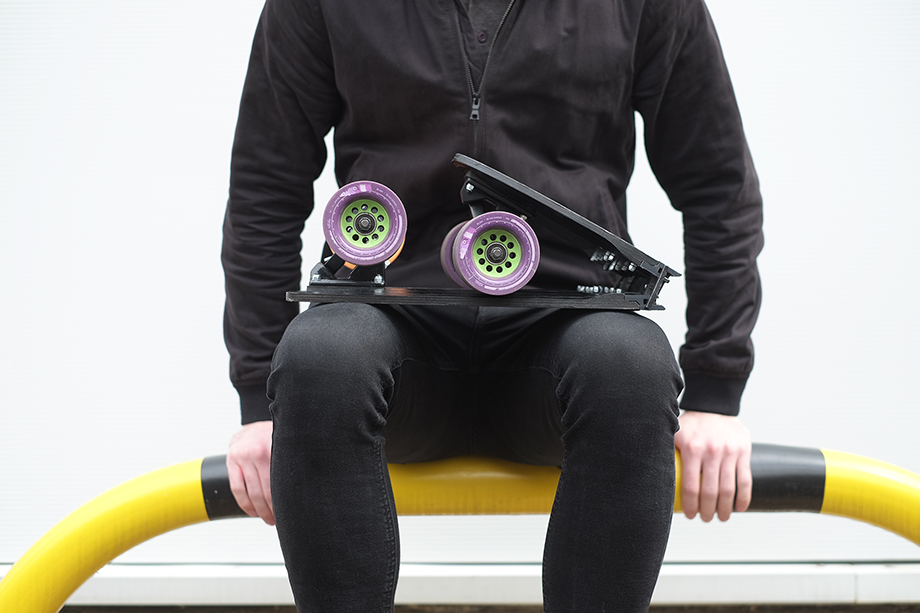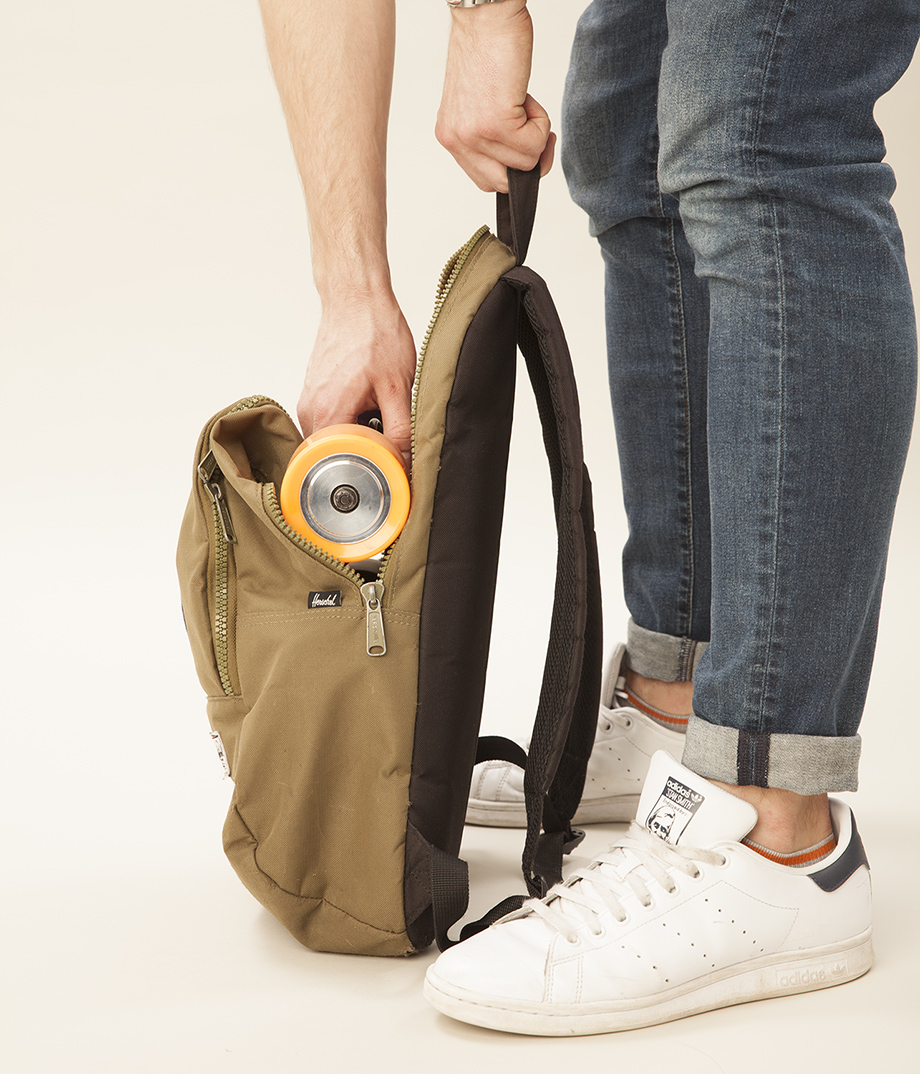An electric skateboard that easily folds inside a standard rucksack is to be unveiled in London, in a move it’s hoped could help solve the infamous ‘last mile’ problem.
For decades, transport experts have struggled with how to get commuters the ‘last mile’ to work or to home, once they leave the public transport system. But whilst public bike-hire schemes and electric scooters have aimed to plug the gap in recent years, the new skateboard promises to be lighter, more mobile and more efficient than currently-available products.
“Current portable transport options are evolving fast and offer convenience even over public transport. But although you can get scooters or skateboards that can easily be taken on the tube or bus, they’re still cumbersome to carry around” said Daniel Oakes, a design student at Brunel University London. “I wanted to create something that was comfortable to ride but small enough to fit in a backpack, so that it could be used in more situations.”

The skateboard, which has been unveiled at Made in Brunel, an annual showcase of Brunel design students’ work, weighs just over four kilograms and folds down to be just 35cm long, has a range of around 6 miles on a full charge, and can reach speeds of up to 15mph. It charges from a standard wall socket and takes around two hours to recharge from flat. Whilst there are already electric skateboards on the market, Oakes says his will be foldable, more mobile, and more targeted at a professionals looking for a quick and easy way to get around.
The clever design integrates the batteries into the board’s deck, whilst the whole device is driven by a single motor built into the rear wheel. The rider controls the device using a simple, single-hand controller, which the designer says makes it easy to ride, even for those who would normally shy away from using a normal skateboard.
“What makes normal skateboards hard is learning to transition your weight from being on the board, to pushing on the ground, and to be back on the board again.” said Oakes, who originally designed the board for his final degree project, but who has since founded the company Iconicle Design to launch the finished product to market.
“When you’re standing on an electric skateboard though, that’s all you’re doing – just slightly shifting your weight forwards or backwards depending on whether you’re accelerating or decelerating, so the learning curve is much shorter. I’ve seen complete beginners who have never been near skateboard ride this smoothly within five minutes.”

Whilst the likely up-front cost hasn’t yet been announced, the running costs for the skateboard are likely to be negligible, with Oakes stating that the board uses less power to travel a mile, than a person would use walking the same distance.
“The cost savings are undeniable – it only costs about £3 a year to run,” said Oakes. “When you compare that to catching a bus every day to cover the last mile, you’re looking at four or five hundred pounds a year, rather than £3 for the skateboard.”
Whilst PLEVs – Personal Light Electronic Vehicles – remain illegal on UK roads under the 1980 Highways Act, with the exception of assisted bicycles, there is a large and growing movement to have the rules changed. In November 2018, Electric scooter hire company Bird started offering their service on London’s Olympic Park, and now hope to get the rules changes to allow their use on public land.
Other countries have been quicker to embrace PLEVs though, with France, Germany, the USA and Canada all considering them legal in different ways, although Paris recently announced a planned ban on electric scooters.
The prototype of the folding skateboard is on display at Made in Brunel at the Oxo-Tower from June 13 to16. Entry is free.
Reported by:
Tim Pilgrim,
Media Relations
+44 (0)1895 268965
tim.pilgrim@brunel.ac.uk